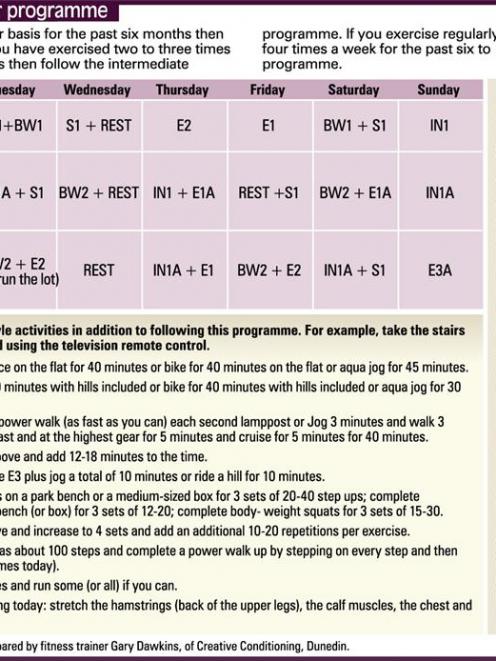
We all need an incentive, and what better challenge than the Dunedin full or half-marathon run or the recreational half-marathon walk, in Dunedin on Sunday, September 12.
The full marathon is a 42.5km running event for people aged 18 years and over. The race begins beside the Royal Albatross Colony, at Taiaroa Head, follows the Otago Peninsula into town and then loops back to finish at Port Chalmers. Competitors have a time limit of five hours to complete the race.
The half marathon is a 21.5km event, open to all runners. All participants 16 years and under must have written consent from a parent or guardian. The race begins near the Edgar Centre, on Portsmouth Dr, and finishes at Port Chalmers.
The recreational half-marathon walk is a 21.5km event that requires a reasonable level of fitness to complete. No running is allowed, so if you intend running some of the event you must enter as a runner. This event also starts near the Edgar Centre and finishes at Port Chalmers.
Entry forms can be obtained by visiting www.moromarathon.co.nz
Before starting a training programme for the first time for the half-marathon, it is important you visit your doctor.
Half-marathon run
Novice 11-week training plan
Unless you have a bad injury or a major health problem, there is no reason why you cannot train to complete a half-marathon in 11 weeks.
To be able to finish the half-marathon run, you should already be able to run 5km two to four times a week.
However, if you have not had a pair of running shoes on for a while, then perhaps you should attempt the recreational half-marathon walk this year and train towards some smaller 5km and 10km runs.
Important points in the training plan.-
Jogging: You should be at an intensity level where you are able to comfortably hold a conversation while running.
Shorter to moderate runs: You should be in control of your breathing and be able to just hold a conversation while running.
Long runs: Once a week there will be a long run which will increase in distance each week.
Intervals: All-out sprints.
Rest days: These days are just as important as training days. Fitness improvements can only occur when the body has sufficient rest periods.
Cross-training: Continuous compressive loading on joints can cause long-term injury. It is important to do the cross-training days in the programme so your joints get to recover. It is fine to walk for a while when you are feeling tired on the runs, as walking is a type of cross-training.
Stretching: This is important, especially after a long run. The quadriceps, hamstrings, calves, hip flexors and arms need to be stretched to help reduce muscle soreness.
Resistance training: Running puts a lot of pressure on hips, knees and ankles so bodyweight strength exercises are important to build the muscles that support those joints. Strength exercises will also help to iron out any biomechanical imbalances which can cause major problems when running is intensified.
Changing the plan: Yes, you can substitute one day with another if it fits in better with your lifestyle, just as long as you complete all of the required exercise each week. Training plans only work if they are flexible.
Where do I run?
Choose places that you enjoy, such as at the beach, beside the harbour or on off-road tracks. Make sure at least two of the weekly runs are on tarseal, as you will need to get used to the harder surfaces.
Your training runs should be undulating when possible. The Moro Half Marathon is primarily flat until you reach Port Chalmers. Then there is a hill for 5km-6km before heading to the finish line.
If you have not undertaken any hill running, you may be in for a shock. On the rest days, you should try completing core exercises and stretches.
Hydration: Drink plenty of water before each training session, appropriate to temperature and running distance.
Nutrition: Throughout the programme, eat a well-balanced diet: 60%-70% carbohydrates, 20%-30% protein and 10%-15% fat. Before going on longer runs (two hours before) eat a more complex carbohydrate meal, such as pasta. After longer runs, rehydrate with water and eat a mixture of carbohydrates and protein.
This programme starts next Monday, June 28. This allows for 12 weeks until race day Sunday, September 12. We have one week up our sleeve, in case of illness or injury.
This programme is designed for you to complete the half-marathon, not race it.
• Gary Dawkins is a director of Creative Conditioning in Dunedin.
